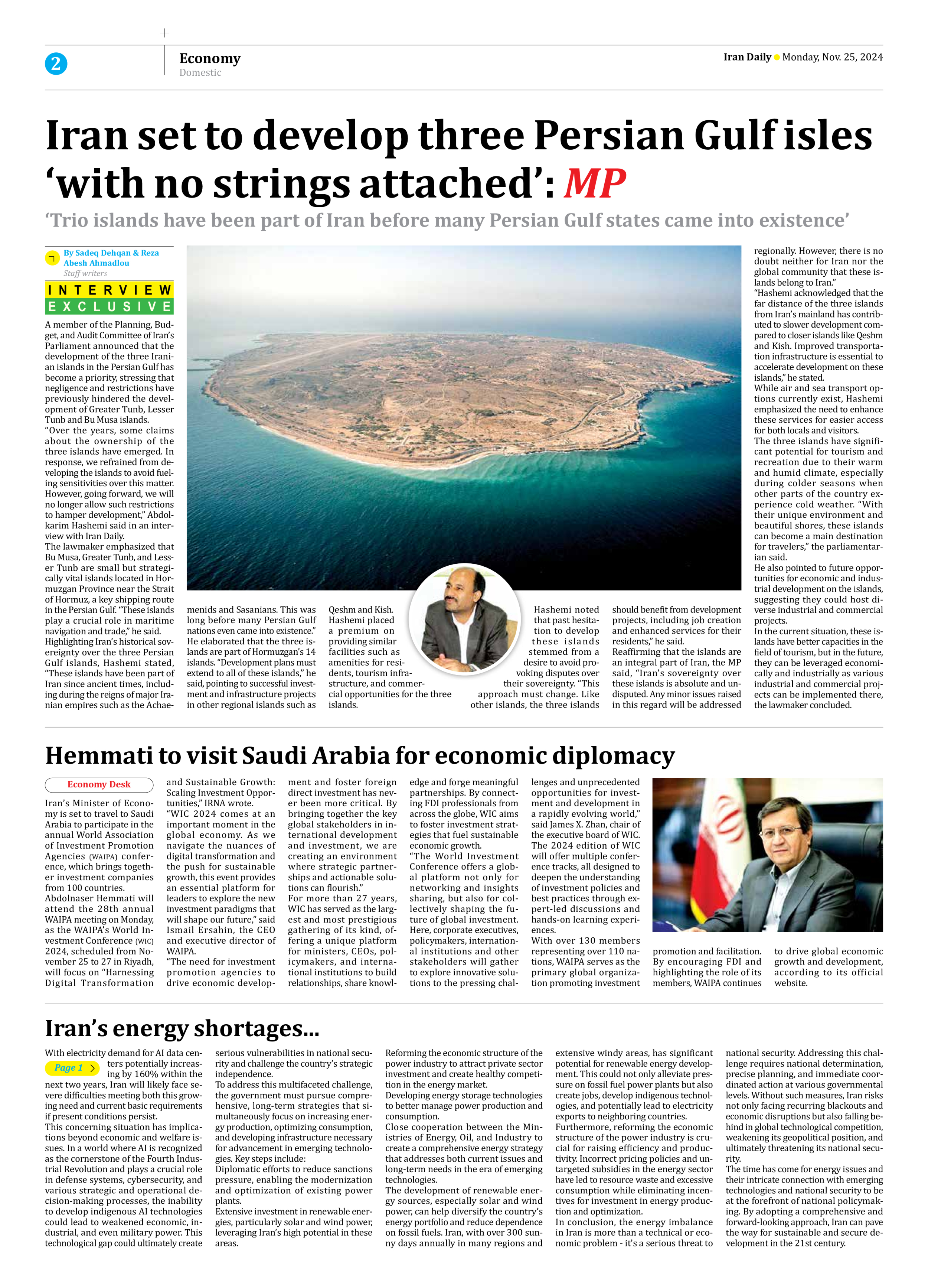
Iran’s energy shortages...
Page 1
With electricity demand for AI data centers potentially increasing by 160% within the next two years, Iran will likely face severe difficulties meeting both this growing need and current basic requirements if present conditions persist.
This concerning situation has implications beyond economic and welfare issues. In a world where AI is recognized as the cornerstone of the Fourth Industrial Revolution and plays a crucial role in defense systems, cybersecurity, and various strategic and operational decision-making processes, the inability to develop indigenous AI technologies could lead to weakened economic, industrial, and even military power. This technological gap could ultimately create serious vulnerabilities in national security and challenge the country’s strategic independence.
To address this multifaceted challenge, the government must pursue comprehensive, long-term strategies that simultaneously focus on increasing energy production, optimizing consumption, and developing infrastructure necessary for advancement in emerging technologies. Key steps include:
Diplomatic efforts to reduce sanctions pressure, enabling the modernization and optimization of existing power plants.
Extensive investment in renewable energies, particularly solar and wind power, leveraging Iran’s high potential in these areas.
Reforming the economic structure of the power industry to attract private sector investment and create healthy competition in the energy market.
Developing energy storage technologies to better manage power production and consumption.
Close cooperation between the Ministries of Energy, Oil, and Industry to create a comprehensive energy strategy that addresses both current issues and long-term needs in the era of emerging technologies.
The development of renewable energy sources, especially solar and wind power, can help diversify the country’s energy portfolio and reduce dependence on fossil fuels. Iran, with over 300 sunny days annually in many regions and extensive windy areas, has significant potential for renewable energy development. This could not only alleviate pressure on fossil fuel power plants but also create jobs, develop indigenous technologies, and potentially lead to electricity exports to neighboring countries.
Furthermore, reforming the economic structure of the power industry is crucial for raising efficiency and productivity. Incorrect pricing policies and untargeted subsidies in the energy sector have led to resource waste and excessive consumption while eliminating incentives for investment in energy production and optimization.
In conclusion, the energy imbalance in Iran is more than a technical or economic problem - it’s a serious threat to national security. Addressing this challenge requires national determination, precise planning, and immediate coordinated action at various governmental levels. Without such measures, Iran risks not only facing recurring blackouts and economic disruptions but also falling behind in global technological competition, weakening its geopolitical position, and ultimately threatening its national security.
The time has come for energy issues and their intricate connection with emerging technologies and national security to be at the forefront of national policymaking. By adopting a comprehensive and forward-looking approach, Iran can pave the way for sustainable and secure development in the 21st century.







